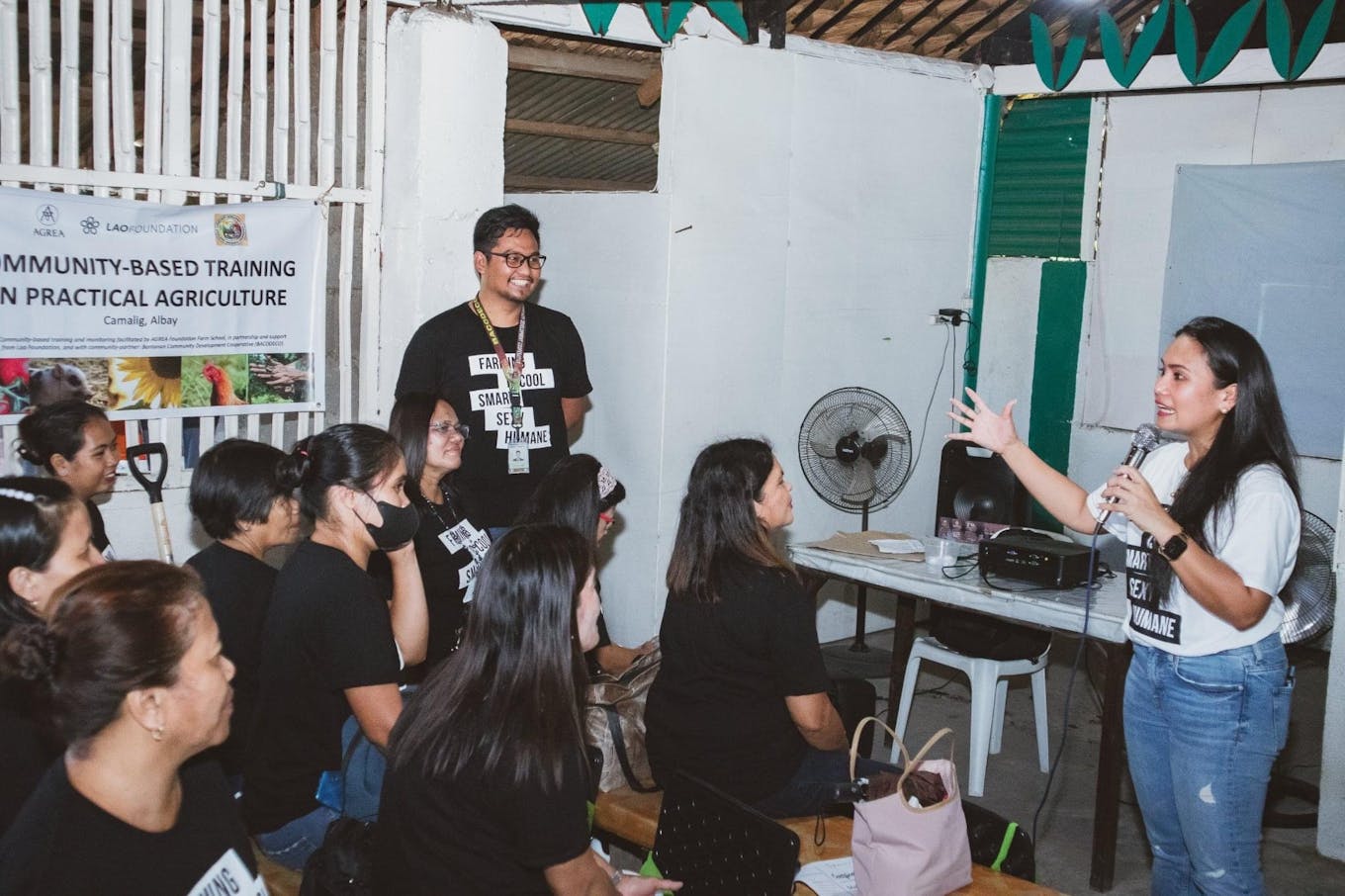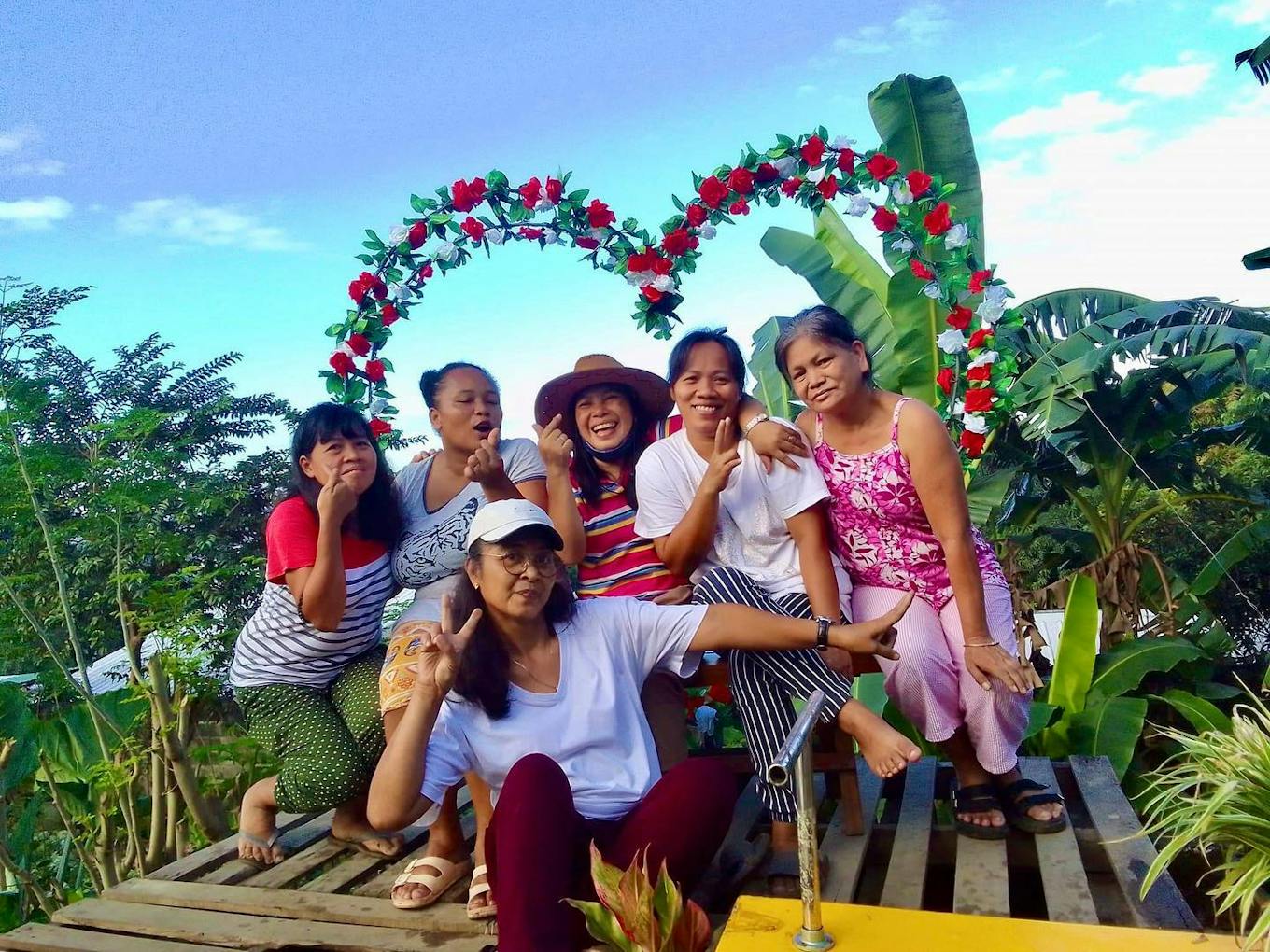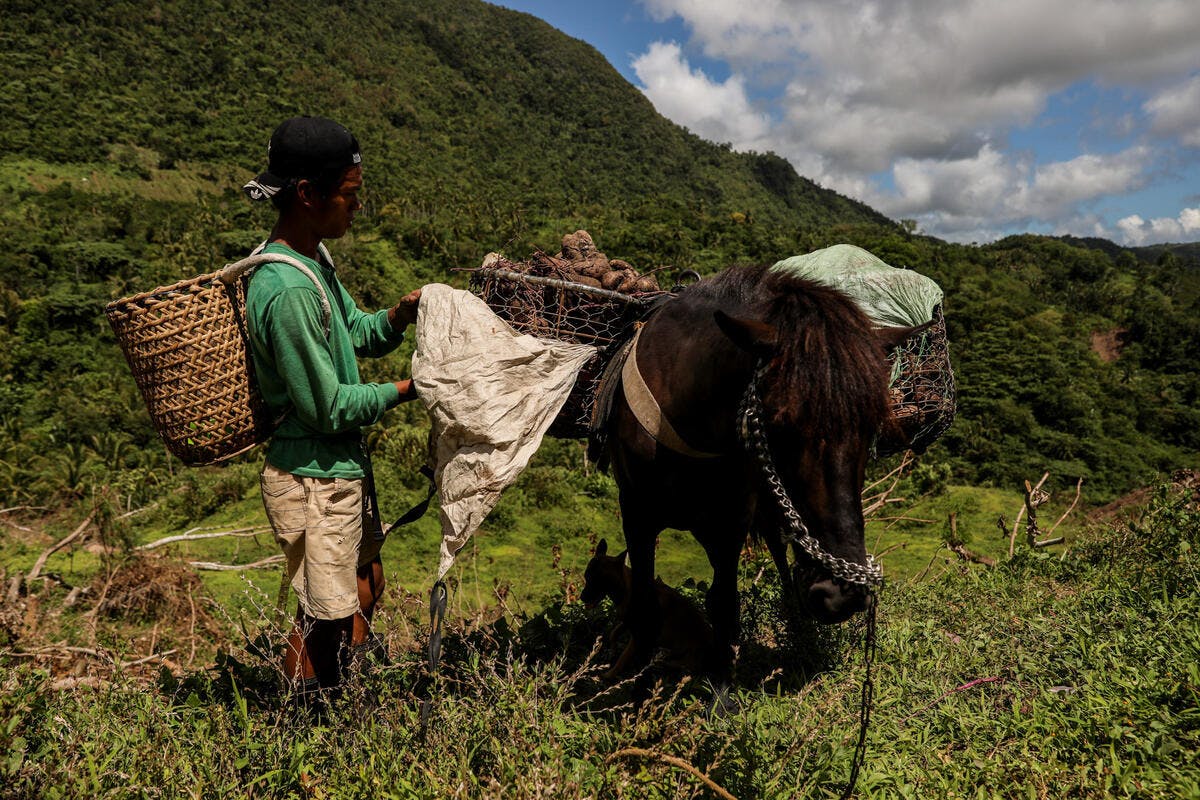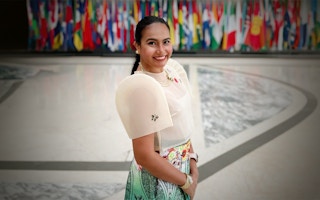As an agricultural country, the Philippines has always regarded farmers as its backbone, especially with millions of Filipinos depending on them for food, yet those who toil and feed the nation are also the poorest.
Where Cherrie Atilano grew up in Negros Occidental, farm workers also struggle with low yields and the lack of access to a market to sell their products for good profits. When she was just 12 years old, Atilano started working with these farmers, as part of the requirements of her being a scholar in agricultural studies, and witnessed first-hand the inequalities and mistreatment they faced.
It was a unique arrangement, where a grant was offered to children growing up in the sugarcane plantation where Atilano lived. Scholars had to pass on what they learn in class to those in their communities. The Western Visayas province, where Negros is part of, has its economy dependent on sugar but workers also turn to vegetable farming for their own subsistence.
Atilano, now the founder and chief executive officer of Agrea Agricultural Systems International, an inclusive agribusiness driven to eradicate poverty and ensuring food security in the Philippines, told Eco-Business she recalls teaching the farmers living alongside her family different methods of increasing their yields.
It was a fun and natural thing to do, she said, so when she graduated from university, and was faced with the prospect of embarking on a prestigious Fulbright scholarship, an exchange programme in the United States, she turned it down to set up her own social enterprise, which sought to train farmers in the decision-making aspects of their trade.
In 2015, Atilano then set up Agrea, which bought crops at fairer prices directly from farmers and sold them to other businesses.
Through Agrea’s training programmes, farmers were taught to plant diverse and high-value crops to increase yield. Since then, it has provided 500 farmers, many of whom own less than one hectare of land, with financial literacy and organic agriculture skills that have improved their income to up to US$400 a month, said Atilano.
Last year, Agrea entered into a partnership where it provided more than 60,000 meals daily to corporates. This has improved the livelihoods of at least 2,000 farmers, from whom the food is directly sourced from.
In this interview, the 36 year-old entrepreneur who also proudly identifies a farmer too, tells Eco-Business about her advocacy work, especially for women in the farming community, as well as the politics and power dynamics that impact on the Philippines’ agricultural sector.
Can you tell us more about your advocacy work?
My family lived near a cuartel, which was a temporary home for sakadas (migrant workers who worked in the sugar plantation owned by a landlord). My father was in charge of the sakadas, bringing them in from different provinces to work as field hands in Negros.
He died when I was turning four years old. My mother always shared with us stories about how he fought for the rights of the sakadas in the 1980s, from the number of hours they worked to providing them social security benefits and ensuring they had enough food supply allocated once harvest and milling season ended. He even hosted lunch gatherings for them on Sundays so they won’t be homesick.
It made me realise growing up that I wanted to take his pro-farmer approach and reinvent that. Sugarcane business is big. With their harvests, landlords can help improve the livelihoods of people instead of taking the money to buy a new car.

Cherrie Atilano (right) leads a training session on practical agriculture for 31 coconut farmers in Camalig, Albay. Image: Agrea
You passed up a Fulbright scholarship to help farmers. Have you ever regretted that choice?
If I had chosen to accept the scholarship, my course would have been in international agricultural development, focusing on sustainable agriculture. It was a big thing then in 2011. The Sustainable Development Goals (SDGs) were launched (by the United Nations) the following year.
But I never regretted it. I would not have been the entrepreneur that I am now. I would have been a scientist or part of academia. But the four years I spent on the Gawad Kalinga Enchanted Farm where I was teaching young people about sustainable agriculture really strengthened my sense of entrepreneurship in farming that led me to form Agrea. It felt like I did a masters in business administration in farming.
Years later, I ended up working with the UN anyway. [Atilano was appointed as a UN food systems champion and participates in global conferences to share her expertise on the link between food and climate.]
What was the biggest highlight in your career in 2023?
We partnered with an organisation that caters food for employees across various industries. Fruits and vegetables were sourced from our farmers, and we were able to provide up to 60,000 meals daily.
Agrea would pay the farmers based on the current prevailing farm-gate price or the selling price between farmers and traders, largely dictated by the latter. To date, commodities are actively sourced from 2,000 farmers from a group we formed during the pandemic.
Some of them were from our women farmers’ association in Majayjay, Laguna, while some are from Payatas, Quezon. There are over 200 of them who are actively trained. There are a thousand others who are housewives or single mothers who are still learning. I have a bias for single mothers because I was raised by one.

Farmers from Agrea’s Women Food Producers Association in Payatas, Quezon, who are mainly housewives and single mothers.They are trained to plant vegetables like radish and eggplant from urban gardens. Image: Zeny Gallanos/ WFPA
What is the most challenging part of your job?
The lack of infrastructure supply chain and logistics in the Philippines is a problem. For example, we get a lot of our fruits like bananas, pineapples, pomelos, honeydews and melons from one provider in South Cotabato, Mindanao [the southernmost island group in the country]. These take three days to reach Manila, and we depend on whatever trucking system we can rent. Our supplier transports the goods using the roll-on, roll-off (RORO) [ a vessel designed to transport wheeled cargo that can be driven on and off the ship].
We also have farmers in Majayjay who are our suppliers for tomatoes, cucumber, radish, and ampalaya (bitter gourd). They have to plant on the slopes of Mt. Banahaw [an active volcano that straddles the provinces of Laguna and Quezon]. The vegetables have to be brought down using a horse because there aren’t farm-to-market roads. The farmers pay the horse owners 2 to 3 pesos (US$0.036-0.054) per kilogramme (kg) of vegetables they transport and traders buy the goods for only about 5 pesos (US$0.089) per kg. What about costs of production and labour? In Agrea, we’ll buy it for 30 to 35 pesos (US$0.54-0.62) per kg so they get a bigger income.
Food loss is also huge, with about 30 to 40 per cent of the goods spoilt in transit.

A farmer loads his horse with baskets of harvested purple yam from his family’s farm in Daraitan, Rizal province. Some remote areas in the Philippines still make use of horses to transport their crops to the marketplace. Image: Basilio H. Sepe / Greenpeace
Despite the challenges, what inspires you and keeps you going?
When we connect farmers to the market, and they come back to say thank you for buying their produce at a price that gives them a higher income, that inspires me.
There is so much politics in agriculture. Food is politics, more so in a country where food is under the control of a few. On the global stage, I tell people about the pressure that farmers in the Philippines face. There are regulations that make things so difficult for them, such as licence restrictions for regenerative farming that are imposed without consultation. We need to be more farmer-centric.
Some people might have a low regard for farmers, because they see them as uneducated and poor. What would you say to that?
If there are no farmers, there is no food. So as long as you need to eat, you should respect them. If you are going to be demeaning to farmers, I would say, then don’t eat, and you’ll realise so you’ll realise how important they are. I want to change how people see farmers.
People also question my choice to be a social entrepreneur in agriculture because it doesn’t earn so much money. Maybe I do have other options in life, but I will still continue to do this work. I will not do something if I feel it is not impactful.
For me agriculture brings together caring for the environment and educating people. I am able to do climate mitigation; I am able to pursue my passion for education through my farm school – I am able to do all my advocacy work in one industry.
Cherrie Atilano was one of 10 sustainability leaders selected for the Eco-Business A-List 2023. Read our stories with the other winners here.





















